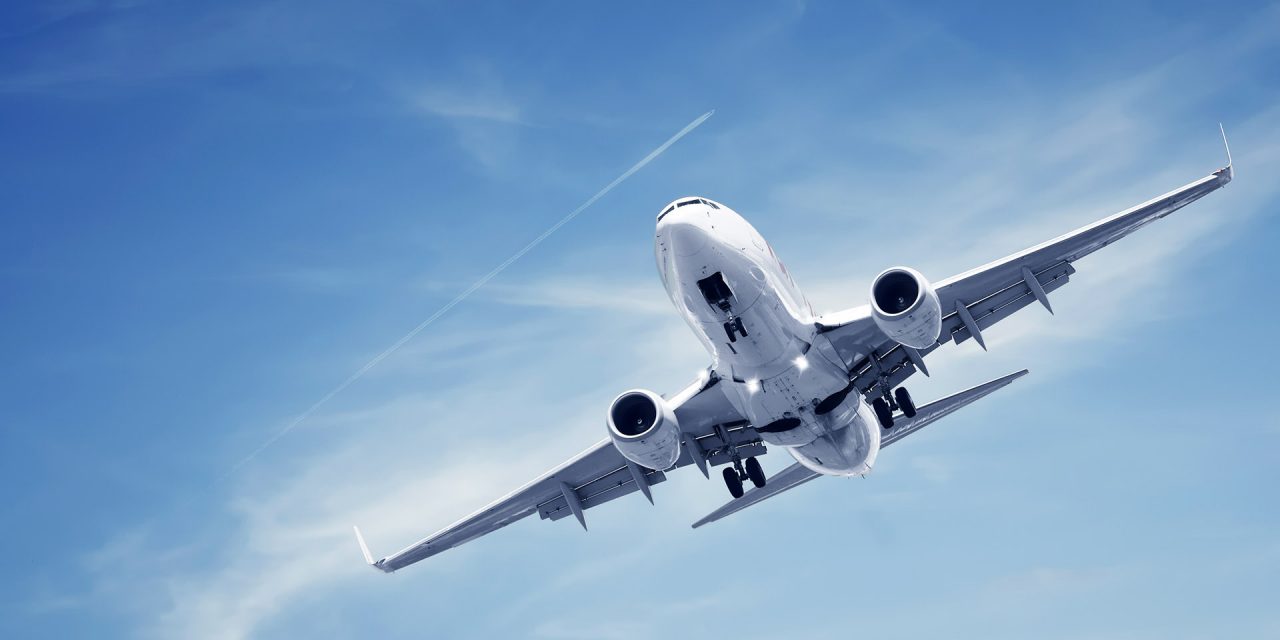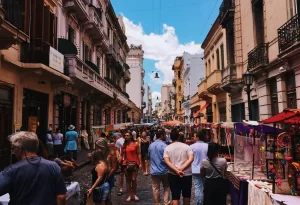The more you live your life on the road, the more you tend to keep little lists of dos and don’ts. We all have obsessive practices that keep us sane, help screen out the little annoyances and maybe even make our life on the road just a little better.
My dos and don’ts lists have some distinctly personal quirks for example, I never stay at inns with less than 10 rooms and I never let a plant manager take me to the best restaurant in town and I would not expect you to understand their rationale. But I do have some nearly universal rules for making a travel purchase. These particular dicta are not written in stone the tablets are too big for my carry-on bag and that’s just as well. The absurdities of group travel require that my Ten Commandments of Travel Buying be reconsidered, rewritten and road tested on a regular basis. Keep that important caveat in mind as I descend from Mount Columnist and impart these bits of travel buying wisdom.
- This is my newest, and admittedly most cynical, guiding precept of travel buying. In its zeal to squeeze every last penny from every last traveler and its willingness to discount to the point of fiscal ruination for leisure travelers, the travel industry has tacitly admitted that its products have no hard-dollar value. Airline seats, hotel rooms and rental cars no longer have definitive, definable, explicable prices. So until and unless a new and rational pricing regimen is in place, a traveler should assume that travel is worth only what he or she is willing to pay for it. The travel industry has turned pricing into a game and it makes no apologies for trying to rip you off, so play the game hard.
Subscribe to Leisure Group Travel for insider advice and tricks of the trade - In this kind of surrealistic pricing environment, it stands to reason that the worst values in travel are full-fare tickets on airlines and hotel rack or published rates. These are the travel industry’s equivalent of retail and no right-thinking business traveler should pay retail. In fact, the travel industry no longer even expects to sell at retail prices. By and large, retail prices now exist largely as a benchmark against which the travel industry can promote their discounted corporate rates and percentage of sales. If you’re ever confronted by an itinerary that requires you to pay full fare for a coach seat or the rack rate for a hotel room, change your plans or cancel your trip.
- Since retail prices are meaningless, travelers must negotiate their way to the best deals. Caveat emptor should be your philosophy. Be especially wary of travel promotions: Never assume that a travel supplier is advertising its lowest price. In fact, as airlines and hotel chains develop narrowly targeted Internet distribution channels (see #7 below), advertised nationwide sales are less and less likely to be the travel industry’s showcase for its lowest prices.
- Even in this Twilight Zone of pricing, cutting through the thicket of competing travel “deals” sometimes is not as difficult as it seems. Whenever you speak to a reservations clerk or travel agent, never make a purchase before bluntly asking, “Is this the lowest price available?” Once the agent responds, ask the obvious follow up question: Are you sure this is the lowest price you have?” You’ll be surprised how often and how far prices drop when you ask those two questions in a firm, but polite, manner. And always cross-reference the price quoted by a human being on the phone against the Web. There’s no guarantee the phone agent and the websites are working off of the same pricing and reservations database.
- The travel industry controls (and I use that word advisedly) prices with yield management, the convoluted and problematic computerized system that theoretically matches existing supply with historical demand at the highest price each traveler is supposedly willing to pay. To achieve this impossibly elusive balance, yield-management computers frequently change prices and regularly reallocate the inventory available at each price level. So, when a reservations agent tells you a flight is “sold out,” this does not necessarily mean that there are literally no more seats available. It often means only that there is no inventory available at a particular price at that exact moment. If you try a week, a day or sometimes even an hour later, the story may be different. Crudely put, you’re trying to outguess a computer when you make a travel purchase, so be persistent. “
- Yield-management computers slice and dice the demand for travel so finely that prices now differ substantially depending on the date, the day of the week and even the hour you travel. Shifting your travel plans by a few days, or even a few minutes, can mean substantial savings. Make certain you ask your travel agent or reservations clerk if the price would decline if you chose an alternate travel date or departure time. If you are a do it yourself booker, I recommend the multi-day pricing grids generated by Orbitz.com. Looking at a week of airline pricing on one route often makes your head spin, but, after you recover, you’ll be amazed at how flexibility yields substantial savings.
- In days of yore essentially being anytime before the Web the travel industry dumped its excess capacity on bucket shops” and consolidators, shadowy and intentionally hard-to-find middlemen who resold travel at deeply discounted prices. In todays wired world, however, airlines and hotels merchandise excess supply via a dizzying array of Internet channels. All of the travel industry now offers Internet-only pricing, sometimes showcasing it on their own websites, other times “”pushing”” special offers into your e-mail. They also sell distressed inventory, albeit with odd restrictions and sometimes in a nameless, commodity fashion, to dozens of independent and quasi-independent Web storefronts. The bottom line: Never assume any single source will always offer the lowest price. No source ever does. Within the dictates of your available time and personal temperament, shopping around does pay off.
- The price you negotiate is rarely the final cost of your travel. Some extras, most notably government mandated taxes and user fees, are annoyingly unavoidable. Others, such as the value added levies in Europe and Canada, are refundable in certain circumstances. Still others, like extra-driver fees on car rentals, can be avoided altogether if you plan carefully. And, of course, there are the outright lies like the current airline fuel surcharges, which carriers unbundle from the quoted price in a vain attempt to convince you that the charge is a government-imposed fee. Then there are the fees you never even think about: the 2-to-5% fee the credit-card companies wrap into their foreign-exchange conversions; the concession recovery fee car-rental firms tack on to their rentals; and even the redeposit fees airlines impose when you return frequent-flier miles to your account. Even the most vigilant buyer will be burned by a new fee from time to time. Consider it combat training. Make note of the surcharge and ask about it the next time around.
- You are not crazy. In this psychotic pricing environment, the travel industry has targeted you, the business traveler, to pay more. In fact, they think you are so desperate to get where you want to go that you will pay any price, no matter how high and demonstrably unfair. Knowing that you’re the target of the industry’s most rapacious pricing strategies should at least give you a small tactical advantage. The less willing you are to be what the travel industry euphemistically calls price insensitive, the less power airlines and hotels have over you. And let me say this as tactlessly as I can: A price insensitive traveler is, by definition, a fool and deserves to sit in the middle seat after paying a full coach fare.
- Finally, do not be obsessive. Or, more to the point: Do not be as crazy as the travel industry. Is finding the absolute lowest price the best use of your time? There is almost always a way to slice another $50 off the price of your airline ticket or $20 off the cost of your hotel room. But it’s not worth it if you must squander an extra day tracking down the discount. Since travel pricing has lost contact with reality, the best deal in travel isn’t necessarily the lowest price. The best deal is the price that logically balances a reasonable expenditure of your money and your time.rnrn11. I know I said there were ten commandments. But I like to give a bit more. This final commandment is as much a warning as a rule. Our elite-level benefits first-class and suite upgrades make life on the road a little more bearable. But never think that these benefits are free. We already pay for them with higher room rates and higher airfares. And the travel industry is conspiring to jack our prices even higher. More and more, those upgrades are going to be available to us only if we purchase even higher priced rooms and tickets.







